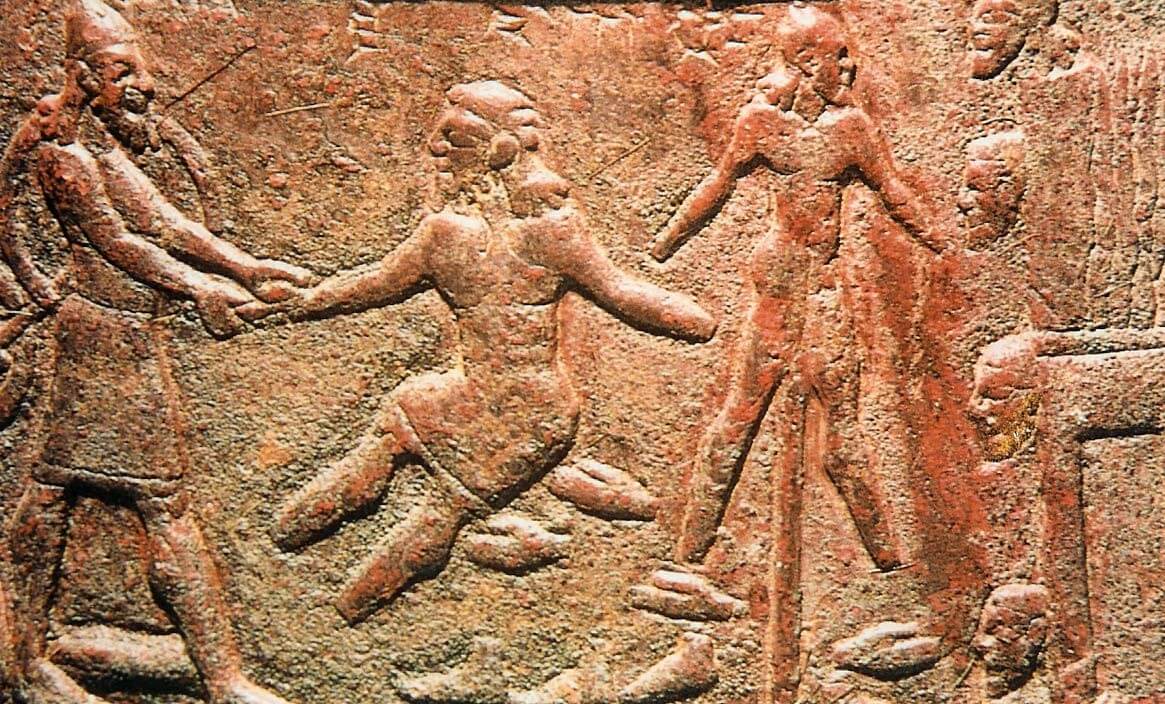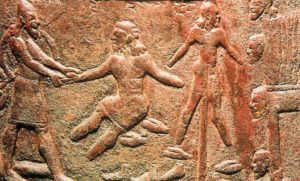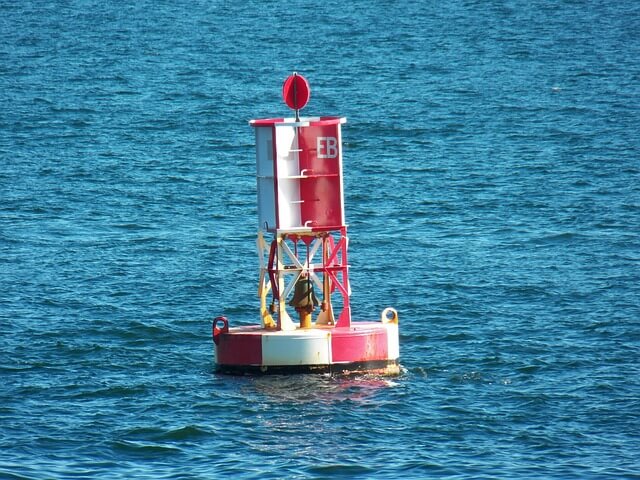One of my all time favorite Bible stories is right here in the middle of Isaiah, sandwiched between judgments and unpleasantries. It is the story of the original Braveheart except better. It spans several chapters and is just so good. I’d read it before but when I read the story in the book Gods and Kings by Lynn Austin, it came alive to me. It’s the story of the showdown between Hezekiah and the Assyrians.
I’ve mentioned it before but the Assyrians didn’t just kill people, they butchered them. Slowly. Their ill-fated tactic which has been a tried and proved in the long-run to be foolish, was to be so brutal with people that they would surrender with little blood shed. Although the Assyrians and others didn’t always keep their promises. They were hard on the people but the torture was less.
But simply put, they raped, they made people eat their poop, they impaled the men on poles through their groin, they tosses babies in the air and caught them on spears, they dismembered people slowly butting off hands and feet, they skinned people alive over the course of a couple of weeks laid out in the sun. Here is an image of some of the Assyrians practices:
When Assyria came knocking on your door, more than a few wet their pants and defecated. They were not the people you messed with. False bravado was foolish.
But Hezekiah was a man of God. He felt to throw off the chains of Assyria and trust in the Lord. Assyria wasn’t happy so they came to Hezekiah’s doorstep on a steam roller. They flattened the cities on the way to Jerusalem in the land of Israel and Judah. Then they came to Jerusalem where Hezekiah was. He hadn’t fled from his people. He stayed. He didn’t need a ride, he needed His God.
Chapter 36 is all about how the Rabshakeh, the chief of Assyria’s princes stood on the doorstep of Jerusalem and mocked Hezekiah and the people for trusting in the Lord. He called to them to surrender and they wouldn’t be forced to “eat their own excrement and drink their own urine” (v. 12).
He worked to bring confusion to the people and said that it was the LORD’s work: “Have I attacked this land to destroy it without the LORD’s approval? The LORD said to me, ‘Attack this land and destroy it‘” (v. 10).
He spoke to them that they shouldn’t trust Hezekiah as he was the one who tore down their high places of worship. And he pointed out the obvious, if the gods could save a people, why hadn’t they saved all the other powerful nations? “Has any one of the gods of the nations delivered his land from the power of the king of Assyria” (v. 18).
He said all these things in the hearing of not just the emissaries of Hezekiah but also in the hearing of all the soldiers on the wall. In fact, the speech was mainly for them to cause them to melt in fear and turn against Hezekiah. It’s an effective weapon. Turn the people against one another and you make a nation weak.
But the soldiers at least kept military discipline. They had been instructed not to answer Rabshakeh, the representative of Assyria. But his words were still effective.
After the meeting, Hezekiah’s emissaries returned to him and reported what he had said. Hezekiah tore his clothes in anguish. And then…
Got to wait until chapter 37.




